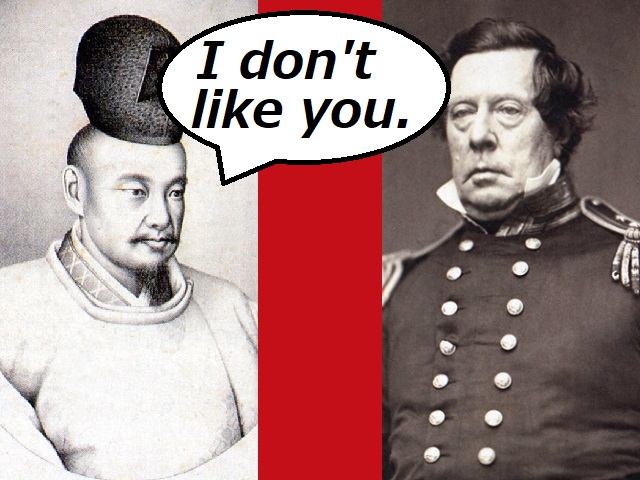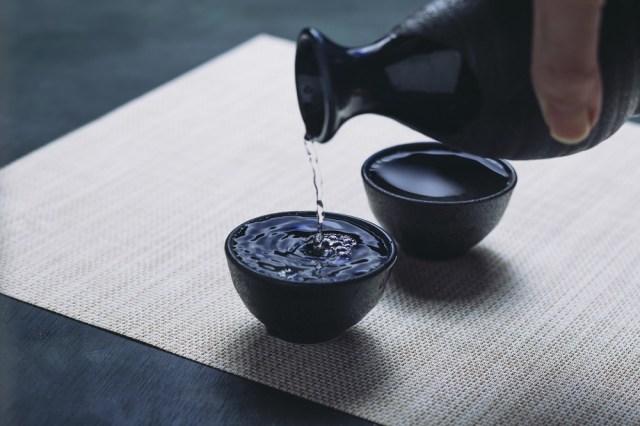“Get them drunk then chop off their heads.” Samurai’s assassination plot against U.S. envoys found

Alternate plan was to just burn them alive.
Matthew C. Perry played arguably the largest single role in ending Japan’s centuries of isolation from the rest of the world. When the U.S. commodore’s expedition arrived in Tokyo Bay in 1853, Japan had spent more than 200 years under government policies that almost entirely forbade any sort of contact with other nations, and upon his return to Japan a year later Perry and shogunate officials signed the Convention of Kanagawa, the treaty which led to the opening of Japan.
Of course, you can’t influence the abolishment of a government policy that’s been in place for so long without earning the ire of some powerful people, and recently discovered historical documents show just how displeased one samurai lord was with Perry’s presence in Japan, and even his continued existence on the planet.
Researchers recently discovered a set of 16 letters written by Tokugawa Noriaki, the daimyo of Mito Province (present-day Ibaraki Prefecture) and father of Tokugawa Yoshinobu, Japan’s final shogun. Noriaki’s letters, written between 1853 and 1855, were sent to his retainer Fujita Toko, a samurai scholar who advocated for the restoration of the emperor as the ruling figure of Japan and the expulsion of foreigners from the country.
The letters discuss specific methods for assassinating the U.S. envoys to Japan, with one section preceded by the heading “Burning the Foreigners to Death” and expanding on the subject with “If we can get them into a mansion that we’ve set up properly, we’d be able to burn them all to death at once, right?”
Another plot outlined in the letters: “Make sure their senior officers drink a lot of sake in the great hall of Edo Castle, then lop of their heads…then notify our men near Shinagawa and have them get rid of everything in their ships.”
▼ This would have trumped every “Dude, I felt so messed up after I got wasted on sake on my Tokyo trip” experience unaccustomed foreign visitors have ever told.

The letters were found in the preserved home a salt merchant in Kurashiki, Okayama Prefecture, among a collection of roughly 10,000 historical documents.
It’s worth noting that though he was the father of Japan’s last shogun, Noriaki himself never held the position and was a prominent pro-emperor figure. Though tasked for a time with advising the shogunate on matters of coastal defense, during which he was an open advocate for strengthening Japan’s military so that it could fight against foreign forces, he was also imprisoned for beefing up his personal domain’s military might against the wishes of the shogunate. As such, his personal plotting may not necessarily have aligned with the exact desires of Japan’s official government at the time.
Source: Yomiuri Shimbun via Livedoor News via Jin, Britannica
Top image: Wikipedia/GooGooDoll2, Wikipedia/Centpacrr (edited by SoraNews24)
Insert image: Pakutso
● Want to hear about SoraNews24’s latest articles as soon as they’re published? Follow us on Facebook and Twitter!
Credit:

0 comments: